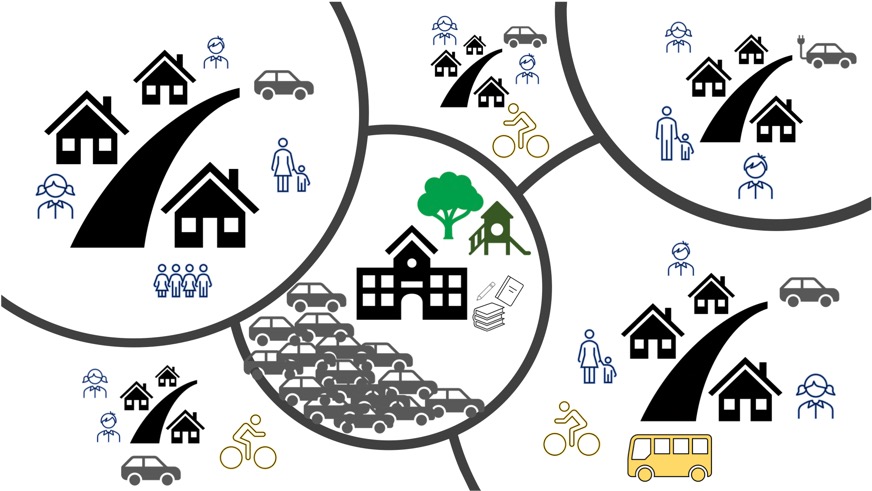The PlaceFinder DEMO:
A Data Observatory Platform for Realising Transition to 15 Minute Neighbourhoods
The government policy addressing climate change relies heavily on achieving net zero carbon in energy and industry in line with IPCC scientific findings for the imperative to reduce emissions. The majority of greenhouse gas emissions are from personal transport and freight plus energy in buildings and embedded in vehicles, appliances and construction. All of these emissions sources converge in the urban form and activity systems. Recent research in urban geography, transport, urban design and other related fields have been highlighting the problems with the car-dominated and post deregulation outcomes with regard to human geography, equity and wellbeing.
This research project asks the question: “How can we engineer a virtual exploration and digital economy that changes the way urban residents and businesses fit into the urban form to reduce the fossil energy use and achieve net zero?” Our preliminary investigations have shown that the ability of households to find a residential location that is affordable and situated within the work, school and other social activity webs so that they do not require a personal vehicle is severely limited under the current market and development norms. The urban activity web includes access to nutrition, outdoor spaces, community and social activities, medical services.
We propose that a new kind of Data Exchange, Modellization and Observatory (DEMO) Platform can be the foundation for the solution. It is possible to build a GIS interactive interface based on Google Maps that allows residents to build their activity web through virtual sim game role play, to explore their adaptive capacity for being able to enjoin a car-free lifestyle and to “shop” for virtual properties that suit their needs and affordability. The aggregate data from the PlaceFinder_DEMO platform will be essential for modelling housing availability, public business opportunities and drive investment. Development zones, transition of car transport infrastructure, and policies can be informed by the aggregate results. The game aspect of the PlaceFinder_DEMO will use machine learning, agent based simulation and optimisation to create the transition experience of the city.
The research will be carried out with Aquatera who will provide the route to commercial development at scale. Aquatera have experience in GIS data and applications for environmental assessment of renewable developments. Aquatera are partners with the Islands Centre for Net Zero (ICNZ). EMEC is the project manager for the ICNZ including the Transition Lab PlaceFinder_DEMO project.
